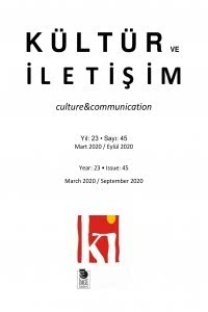Minör Edebiyatın Görünümleri: Çağdaş Türkiye Sinemasından İki Örnek
Deleuze ve Guattari’nin minör edebiyat/sinema fikrini açıklamak için ortaya attıkları “kolektif bildirim” kavramından, verili bir filmin siyasi katmanlarını araştırmak için yeterince yararlanılmadı. Bu kavram sinema bağlamında, yazarın kendini içinde bulduğu kişisel bir dil yokluğu krizi ile “halk” kategorisinin nesnel olarak zayıflayıp parçalanmaya yüz tutması gibi olumsuz koşullar içinde kollektif bir söze ulaşabilme olasılığını anlatır. Öyle ki, bu olasılığın gerçekleşmesi sözkonusu koşullara tâbi olan iki tarafın da hem sanatçı hem de sanatçının halkı olarak gerçek hayattan oyuncu başkalaşması demektir. Böylece bir filmin siyasi boyutunu sadece siyasi meselelerin konu edildiği tematik bir sinema anlayışının ötesinde düşünmek mümkündür. Sonuçta minör sinema diye adlandırılan da bu tür bir kollektif söz siyasetiyle belirlenir. Bu yazı, pek de siyasi sinema örneği olarak görülmeyen Zeki Demirkubuz ve Nuri Bilge Ceylan filmlerinde işleyen bu türden bir siyasetin yeri üzerine düşünmeye çalışıyor. Burada önerilen kuramsal çerçeveye göre Demirkubuz ve Ceylan sineması, klasik siyasi sinemayı olanaklı kılmış “halk” kategorisinin parçalanması karşısında geliştirilmiş farklı iki estetik cevap olarak görülebilir. Bu sorunsalı açmak için Deleuze’ün “kayıp halk” ya da “azınlıklar” kavramına başvurarak bu kavramların Deleuze’ce uygulandığı tarihsel dönem dışında da geçerli olduğunu gösteriyoruz. Yazı, Demirkubuz ve Ceylan’da rastlanan profesyonel olmayan oyuncular, serileşme, ulusal alegori, otobiyografik öğeler, iç mekânlar ile dış manzaralar gibi bazı özelliklerden yola çıkan bir analizin bu sinemacıların ikinci kuşak, minör bir siyasi sinemanın örnekleri olduğunu gösterebileceğini iddia ediyor
Anahtar Kelimeler:
Politik sinema, Deleuze, minör edebiyat, Zeki Demirkubuz, Nuri Bilge Ceylan, kollektif söz.
Versions of Minor Literature: Two Contemporary Cases from Turkish Film
The concept of “collective enunciation,” which Deleuze and Guattari propose in delineating their idea of minor literature/cinema, remains regrettably underdeveloped for the purpose of exploring the political investment of a given film. In the context of cinema, the concept designates the possibility of attaining a collective voice in film under a set of negative conditions, such as the crisis of a private poetics and the objective disintegration of the category of the “people,” through the transformation of both parties involved in these conditions, the author and real characters as her people. In this way, it becomes possible to imagine the political dimension of a film in such a way that goes beyond the merely thematic treatment of political issues. In the end, this refers to the politics of what is called minor cinema. This paper reflects on the place of such a politics in the cinema of two contemporary Turkish cinematographers, Zeki Demirkubuz and Nuri Bilge Ceylan, who are rarely imagined as political filmmakers. It proposes a theoretical framework which enables reading their films as two different aesthetic responses formulated within cinema against the fragmentation of what made the classical political cinema possible: the “people.” For this purpose, it is necessary to show that Gilles Deleuze’s concept of “missing people” or “minorities,” which made modern political cinema possible according to Deleuze, is not restricted to the historical period chosen by him. The paper demonstrates that an analysis of certain aspects of Ceylan’s and Demirkubuz’s films, such as real characters, formation in series, national allegory, autobiography, interiors and outdoor landscapes, warrants an understanding of the work of these two authors as instances of a second generation, minor political cinema.
Keywords:
Political film, Deleuze, minor literature Keywords: , Zeki Demirkubuz, Nuri Bilge Ceylan, collective enunciation.,
- ISSN: 1301-7241
- Yayın Aralığı: Yılda 2 Sayı
- Başlangıç: 1998
- Yayıncı: İmge Kitabevi Yayınları
Sayıdaki Diğer Makaleler
Etkinlik Değerlendirmesi: 14. Ulusal Sosyal Bilimler Kongresi
Ceren Salmanoğlu EROL, Tuncay ŞUR
Kent ve Kimlik İlişkisi Bağlamında Anlamın Üretim Yeri Olma Açısından Simge Mimari
Minör Edebiyatın Görünümleri: Çağdaş Türkiye Sinemasından İki Örnek
Izdırabın İmgesi: Göstermenin Zorunluluğu ile Gizlemenin Zorluğu Arasında
